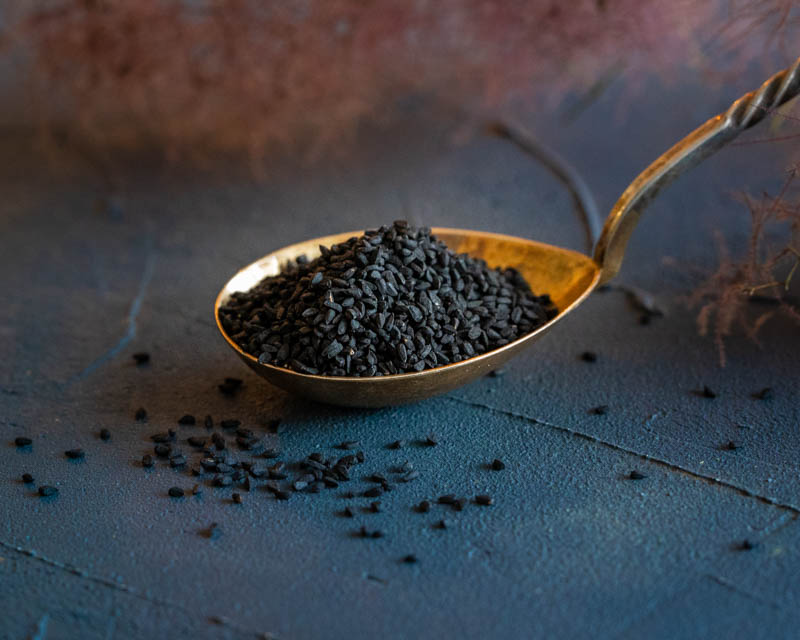
Organic black cumin seeds
From 1.80€


The journey of organic blackgram (black cumin) from traditional use to modern wellness ally.
Blackgram, a small but useful seed derived from the Nigella sativa plant, has a rich history and growing scientific interest. Black cumin, or Kalonji, is a flowering plant that grows in South and South-West Asia. Although popularly known as black cumin, it should not be confused with ‘Kala Jeera’, a cumin belonging to the Biniu bulbocastanum family. This unpretentious seed, often called black cumin or black seed, boasts a wide range of health benefits.
Caution
Although cumin is generally safe to consume, some people may be sensitive to the seeds or oil of cumin. If you are a first-time user, it is advisable to start with a small amount.
For those with serious medical conditions, please be careful when using Edelweiss seeds or Edelweiss oil as a supplement or medicine.
It is not recommended for use by women who are pregnant or breastfeeding.
Cumin seeds are a popular spice in Middle Eastern and Indian cuisine, often used in dishes such as curries, stews, breads and pickles.
Cumin powder can be used as a flavouring in coffee or tea.
Sources
https://www.healthline.com
https://www.webmd.com
NOTE. The information contained herein should not be construed as a recommendation for treatment or other health issues. We encourage you to make personal decisions about your personal health, taking into account a wide range of sources of information.
Organic black-eyed pea seeds 100% (Nigella sativa L.)
Energy: 500 kcal
Protein: 20 g
Total fat: 40 g
Carbohydrate, difference: 40 g
Dietary fibre: 20 g
Iron: 7.2 mg
Sodium: 0 mg
Retrieved from FoodData Central;
Data type: Brand; FDC ID: 2069594
Store in a dry, dark place

